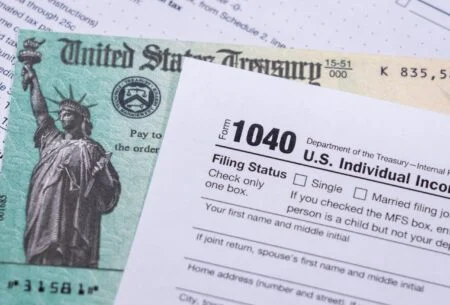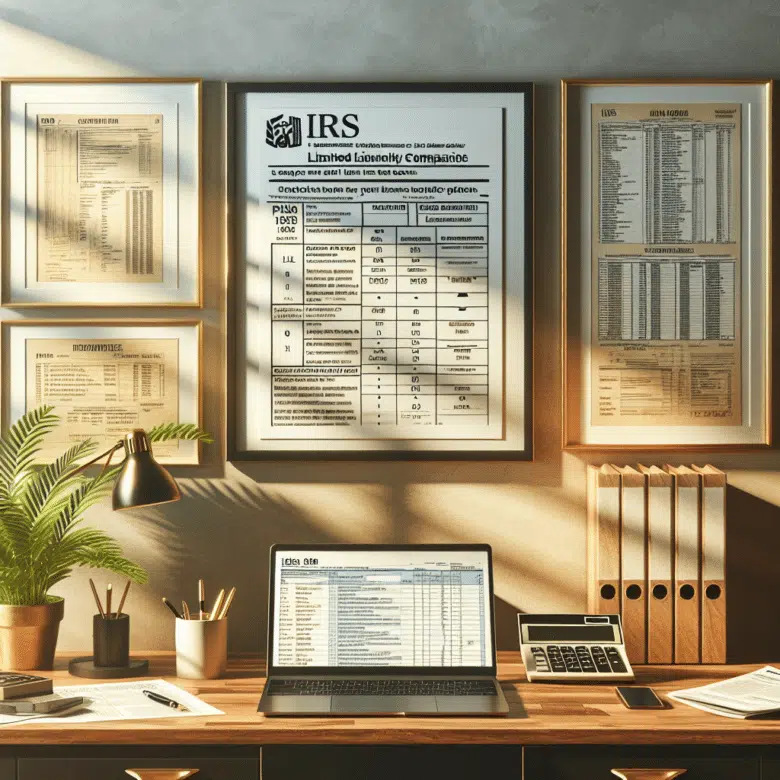When is the Sale of My Personal Residence Taxable?
When it comes to real estate transactions involving the sale of a personal residence, many homeowners, including members of the uniformed services, foreign service, and intelligence agencies, are concerned about the potential tax implications, especially when it comes to maximizing the tax benefits of selling their home. The good news is that in most cases, you can exclude all or part of any gain from taxation if you meet certain criteria, such as transferring your home as part of a divorce settlement.
This article will explore updated 2024 tax rules, including the capital gains tax exclusion for married couples filing jointly and other scenarios. It will also cover ownership and use tests, reporting requirements, and how to maximize tax benefits. If the sale is reportable, you’ll need to file Schedule D and Form 8949 with your Form 1040.
Exploring the Basics
Understanding the taxability of the sale of your personal residence requires familiarity with certain key concepts. Let’s explore them one by one:
Determining Primary Residence
Before delving into tax implications, it’s important to establish your primary residence and satisfy the use requirement. The Internal Revenue Service (IRS) considers a property your primary residence if you live in it for the majority of the year and physically occupy the home. This definition matters because tax rules are different for primary homes, second homes, and investment properties. Personal property like houseboats, trailers, or cooperative housing stock doesn’t count as a residence under local law. Making improvements to your primary home can increase its value and lifespan. You can also add the cost of these improvements to your property’s basis.
Determining your primary residence is relatively straightforward if you live in one home for the majority of the year. If you divide your time between multiple properties, things like how much time you spend at each home, where your personal and work activities happen, and the address you use for legal and financial matters can help identify your main home. Your primary residence doesn’t have to be a single-family house—it could be a condo, cooperative apartment, mobile home, or even a houseboat.
Capital Gains Tax
When you sell a personal residence, the potential tax liability arises from capital gains. Capital gains tax applies to the profit earned from selling an asset, in this case, your home. It’s calculated by subtracting the property’s cost basis (the purchase price plus eligible expenses) from the sale price.
The cost basis of your home includes more than just the purchase price. It also includes certain expenses related to buying and improving the property, such as real estate agent fees, closing costs, and the cost of major renovations or additions that add value to the home.
Keeping track of these expenses during your time as the owner is important. When you sell your home, having an accurate cost basis helps you calculate your profit and may lower the amount of capital gains tax you owe. Understanding and documenting these costs can help reduce your tax burden.
Exclusion of Gain
The IRS offers a valuable exclusion on the gain from selling your home if you meet certain requirements. As of 2024, if you qualify under the ownership and use tests, you can exclude up to $250,000 of profit from taxes if you’re single or up to $500,000 if you’re married and filing jointly. This exclusion can significantly reduce or even eliminate your tax bill. Many people assume all profit from selling a home is taxable, but that’s not true. This exclusion helps homeowners keep a large portion of their sales profit tax-free.
To qualify, you must have owned and lived in your home as your primary residence for at least two of the last five years before selling it. There’s no age limit for this exclusion—it’s available to all eligible taxpayers.
Your tax bracket also matters when calculating capital gains tax. For example, if your income puts you in the 20% tax bracket, and your taxable gain from the sale is $200,000, you would owe $40,000 in capital gains tax. The taxable gain is typically the difference between the price you paid for your home and the amount you sold it for.
Additional Updates for 2024
- For sales after January 1, 2024, the exclusion limits remain unchanged at $250,000/$500,000.
- The long-term capital gains tax rates for 2024 are:
- 0% for taxable income up to $94,050 (married) or $47,025 (single).
- 15% for income up to $94,051 to $583,750 (married) or $47,026 to $518,900 (single).
- 20% for income above these thresholds.
Qualify with the ownership test.
To qualify for the exclusion, you need to meet both the ownership and use tests:
- Ownership test: You must have owned the property for at least two years within the five years before the sale.
- Use test: The property must have been your main home for a total of at least two years during the same five years. The two years don’t have to be consecutive; as long as the total adds up, you may qualify.
If you’re unable to care for yourself and have lived in the home as your primary residence for at least 12 months during the five years before selling it, time spent in a care facility (like a nursing home) can count toward the residence requirement.
Members of the military, foreign service, or U.S. intelligence community can pause the five-year period for up to 10 years if they or their spouse are on “qualified official extended duty.” This applies if you served for more than 90 days or an indefinite period at a duty station at least 50 miles away from your main home or lived in government housing under orders.
Remember, this exclusion can only be used once every two years. If you sell another home within that time, you may not qualify and could owe capital gains tax.
Sale of Principal Residence: Capital Gains Tax Exclusion
If you are married and filing a joint tax return, then you may be eligible for an unlimited amount of capital gains exclusion on the sale of your principal residence, including the sale of the home. To qualify, both spouses, including former spouses, must have met the eligibility requirements of owning and using the home as their main residence during two out of the last five years before the date of sale. You must meet all other conditions to be eligible for the exclusion, such as having owned the home for at least two of the five years prior to its sale.
Exclude The profit
The exclusion rule lets you avoid paying taxes on the profit from selling your home if you owned and lived in it as your main home for at least 2 out of the last 5 years before selling.
If you sell more than one home within two years or don’t meet the full requirements (like moving for a job or health reasons), you might still qualify for a smaller exclusion. The IRS has provided rules for these situations, including guidelines for couples filing a joint return.
If you meet the rules, you can exclude up to $250,000 of profit from taxes when selling your home.
- Ownership and Use: To qualify for the sale, the person must have used the home as their main residence for at least two years within the past five years. These two years don’t have to be in a row.
- Frequency Limitation: The exclusion applies to a maximum of one sale per two-year period.
Note the following:
- If you didn’t use your property as your main home after 2008, you can’t exclude any gain from its sale attributable to that period.
- If you are unmarried and jointly own a main home, you can each exclude up to $250,000 of gain if you meet the requirements stated in IRC Section 121.
Married Couple – Each Spouse Sells a Principal Residence
If both spouses meet the IRS rules for ownership, use, and frequency and each owns a home, they can each exclude up to $250,000 of profit from the sale of their homes. If they meet all conditions, they might be able to combine their exclusions for a total of $500,000, called the maximum exclusion.
Example:
Dan and Delores got married on May 1, 2022, and bought a new home. Earlier in 2022, both sold their own homes, where they had lived for over two of the past five years. Neither had used the capital gains exclusion in the last two years. Dan made a profit of $210,000, and Delores made a profit of $430,000, totaling $640,000 in capital gains.
Dan can exclude his entire $210,000 gain, and Delores can exclude $250,000 of hers. Together, they can exclude $460,000. However, Dan cannot use his exclusion to cover Delores’ remaining $180,000.
Surviving Spouse Sells a Principal Residence
If someone’s spouse passed away within the last two years, they can still qualify for the $500,000 capital gain exclusion as an unmarried surviving spouse.
To qualify:
- Either the deceased spouse or the surviving spouse must have owned the home for at least two years before the spouse’s death.
- Both spouses must have lived in the home for at least two years, right before the spouse’s death.
If the surviving spouse remarries before selling the home within two years, they don’t need to follow the rule that neither spouse used the exclusion in the past two years.
Conclusion
The capital gains exclusion for selling your home is a valuable tax benefit for married couples filing jointly or surviving spouses. If you meet IRS requirements, you can exclude up to $250,000 (or up to $500,000 for qualifying surviving spouses) from the profit from taxes when selling your home. Be sure to understand the rules for selling your main residence to take advantage of this benefit. A tax professional can help you fully understand the taxes in selling your home.
FAQs
What are the tax implications of selling my personal residence?
The tax impact of selling your home depends on factors like how long you’ve owned it and whether it qualifies for exemptions. Talk to a tax professional or accountant to understand how the sale affects you.
How long do I need to live in my home before I can sell it and avoid capital gains taxes?
To exclude capital gains taxes when selling your home, you must have lived in it for at least two of the last five years before selling. This applies to both singles and married couples filing jointly.
Do I need to report the sale of my personal residence on my tax return?
Yes, you may need to report the sale on your tax return. The IRS requires reporting any capital gains, but you might qualify for exemptions. A tax professional can provide specific advice.
What happens tax-wise when you sell your house?
When you sell your personal residence, you may be eligible for certain tax benefits. If you’ve owned and lived in it for at least two of the last five years, you can avoid paying taxes on up to $250,000 of profit if single or up to $500,000 if married and filing jointly.
Also Read






